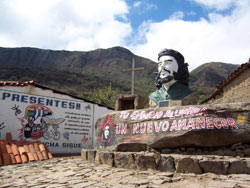For the inaugural seminar of Mnemonics: Network for Memory Studies, a newly established international collaborative initiative for graduate education in memory studies, we invite paper proposals from graduate students on the relations between the aesthetics and ethics of memory.
 Aesthetics and ethics often intersect in relation to the representation of collective memories, especially those of disturbing events or experiences. While decorum is naturally called for in addressing a traumatic past, it can also be argued, from an ethical standpoint, that traumatic memories must be represented in a compelling and unforgettable manner. Representational strategies thus have to find a balance between being ineffectual and irrelevant and being potentially offensive and provoking.
Aesthetics and ethics often intersect in relation to the representation of collective memories, especially those of disturbing events or experiences. While decorum is naturally called for in addressing a traumatic past, it can also be argued, from an ethical standpoint, that traumatic memories must be represented in a compelling and unforgettable manner. Representational strategies thus have to find a balance between being ineffectual and irrelevant and being potentially offensive and provoking.
At the seminar a number of questions following from the main theme will be discussed:
 What are the limits of representation?
What are the limits of representation?- How do certain forms and practices challenge these limits?
- How is this reflected in memory politics?
- Do the limits differ from medium to medium, e.g. from a public monument to a film or a text?
- Are there practices connected to memory that highlight relations between aesthetics and ethics?
We welcome case studies that reflect on the relation between memory and form, and papers that investigate how different media and cultural artifacts approach these aesthetic and ethical questions.
Confirmed keynote speakers:
Sharon Macdonald, Professor of Social Anthropology, School of Social Sciences, University of Manchester. Professor Macdonald is the author of Difficult Heritage: Negotiating the Nazi Past in Nuremberg and Beyond (Routledge, 2009).
Andrea Pinotti, Professor of Philosophy, Università degli Studi, Milan. Professor Pinotti directs the programme “Monument. Nonument. Politique de l’image mémoirelle, esthétique de la mémoire matérielle” at the Collège International de Philosophie, Paris.
Ann Rigney, Professor of Comparative Literature, Utrecht University. Professor Rigney is the author of The Afterlives of Walter Scott: Memory on the Move (Oxford UP, 2012).
Practical Information
Where:
Aarhus University, Denmark
When:
20-22 September 2012
Fee:
250 euros, payable upon acceptance of paper
What’s included:
Attendance, accommodation in tourist-class hotel in the centre of Aarhus, all meals
What’s not included:
Travel
Send:
A 300-word abstract of your paper, a description of your graduate research project (one paragraph), and a short CV (max. one page) to memory [at] au [dot] dk
Deadline for submission of proposals:
15 April 2012
Notification of acceptance:
1 May 2012
Number of places:
24, of which 18 are reserved for the partner institutions
Aarhus is easily accessible from both Billund (BLL) and Aarhus (AAR) airports.
Learn more about Aarhus University at http://www.au.dk/en/.

